How can we plan for what we don’t know?
Teachers this year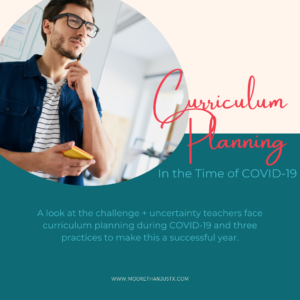 are charged with a daunting task in trying to plan out their curriculum in a time of immense uncertainty. The pacing guides and curriculum planning from the past aren’t supporting us well this year. What’s causing the trouble with curriculum planning?
are charged with a daunting task in trying to plan out their curriculum in a time of immense uncertainty. The pacing guides and curriculum planning from the past aren’t supporting us well this year. What’s causing the trouble with curriculum planning?
Simple. We don’t know what they don’t know. Each student left the end of the 2019 school year with a completely unique understanding of the curriculum. Some students engaged virtually and continued to try to persevere through the technological challenges we faced. Others cared for family members and were unable to meet during Zoom office hours. Let’s not forget students who were already victims of the digital divide and couldn’t engage at all. How can a teacher possibly plan for all the misconceptions and knowledge gaps that students brought with them this year?
School Curriculum Planning
We can seek guidance both from our our experience, and from our inquiry into others’. Talking with teachers in our district is a great place to start. This gives us some local insight into what gaps may exist for students, but can’t tell us everything. Curriculum planning likely looked quite different for teachers at the beginning of the year in light of these challenges. Now, we find ourselves at the halfway point of the school year, but not nearly halfway through the curriculum. Once again, many of us need to pivot our planning.
For math teachers with experience teaching the Common Core State Standards, a preliminary look at the Widely Applicable Prerequisites (WAPs) helps to narrow down and eliminate a few extraneous lessons from within their schools’ purchased curriculum texts. We cannot reasonably expect teachers to address all of the learning deficits AND enact a pre-packaged curriculum faithfully. What is a teacher to do?
Prioritizing Standards of Learning
Enter Achieve the Core, and their 2020-2021 Priority Instructional Content. Here, the authors indicate not only the WAPs, but they’ve also gone so far as to indicate which standards should be prioritized, reduced and even eliminated from curriculum this year. Modeling standards and WAPs are still prioritized across the board, with elimination and reduction in rote procedural skills.
Teachers are encouraged to integrate standards together and focus on equitable teaching practices to ensure all learners are able to access and achieve grade level expectations. The National Council for Teachers of Mathematics suggests three such practices cited within the Priority Instructional Content (p.10):
Selected equitable mathematics teaching practices from Catalyzing Change in High School Mathematics: Initiating Critical Conversations (NCTM, 2018).
- Create structures to position each and every student as a full participant in mathematics and recognize that participation builds agency (Turner, 2013 as cited in NCTM, 2018).
- Use tasks that require reasoning, problem solving and modeling (i.e., tasks with high cognitive demand) to build positive student orientation toward mathematics allowing them to see themselves as doers of mathematics (Boaler & Staples, 2008 as cited in NCTM, 2018).
- Elicit and use students’ ideas and pose purposeful questions to ensure that students see value in their own mathematical thinking and resist pedagogies that reinforce mathematics as a discipline focused solely on right and wrong responses.
Planning Equitable Mathematics Instruction
- Teachers are killing it when it comes to creating structures. We know how efficient a room can run when we’ve
 got solid procedures and systems in place. Creating a structure to allow all students to participate in the instructional process may seem like second nature to you. But let’s make sure we are intentional about it, and transparent with the process for our students. There’s too much uncertainty out there to leave them in the dark. Create and establish class norms for fostering a collaborative learning community. Implement best practices in selecting + sequencing responses to build up the collective understanding within the class, while eliciting responses from all participants.
got solid procedures and systems in place. Creating a structure to allow all students to participate in the instructional process may seem like second nature to you. But let’s make sure we are intentional about it, and transparent with the process for our students. There’s too much uncertainty out there to leave them in the dark. Create and establish class norms for fostering a collaborative learning community. Implement best practices in selecting + sequencing responses to build up the collective understanding within the class, while eliciting responses from all participants. - Reasoning, problem-solving and modeling are at the heart of the modern mathematics movement. Teaching students to define their own problems and persevere in solving them, while simultaneously critiquing the reasoning of others. A favorite activity of mine is the Stick With It problem solving, with low-floor high ceiling modeling tasks focused on getting students to discuss their responses and reason their way to the best possible response for the group.
- Encouraging students to question and generate ideas to find the inherent value of mathematics is the heart of project based learning. Students engaging in project cycles become immersed with opportunities to learn. With opportunities to explore and pose purposeful questions while actively engaging in problem solving. If jumping straight to project based learning seems too far of a leap, why not try your hand creating your own low-floor high-ceiling tasks?
Standards of Learning + Curriculum Planning Post COVID-19
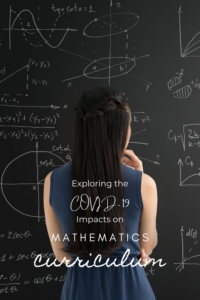 I’m willing to bet that the COVID-19 school closures are going to have an impact on student understanding for more than just the 2020-2021 school year, and I’ve got a feeling that we may see a revision in what standards we deem necessary and essential, and which ones aren’t. If we’re lucky, we may just see the mathematics revolution so many of us have been longing for. Perhaps now we’ll see more widespread support in teaching and designing mathematics with a modern approach. Let’s work together to start transforming your classroom today.
I’m willing to bet that the COVID-19 school closures are going to have an impact on student understanding for more than just the 2020-2021 school year, and I’ve got a feeling that we may see a revision in what standards we deem necessary and essential, and which ones aren’t. If we’re lucky, we may just see the mathematics revolution so many of us have been longing for. Perhaps now we’ll see more widespread support in teaching and designing mathematics with a modern approach. Let’s work together to start transforming your classroom today.
Hey Teach!
Are you a teacher looking for lesson planning inspiration today? Check out my friend Mona’s latest post about drafting your pandemic proof lesson plans!



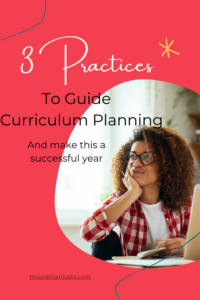 got solid procedures and systems in place. Creating a structure to allow all students to participate in the instructional process may seem like second nature to you. But let’s make sure we are intentional about it, and transparent with the process for our students. There’s too much uncertainty out there to leave them in the dark. Create and establish class norms for fostering a collaborative learning community. Implement best practices in
got solid procedures and systems in place. Creating a structure to allow all students to participate in the instructional process may seem like second nature to you. But let’s make sure we are intentional about it, and transparent with the process for our students. There’s too much uncertainty out there to leave them in the dark. Create and establish class norms for fostering a collaborative learning community. Implement best practices in 
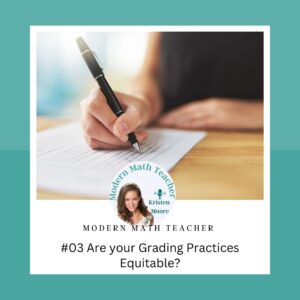
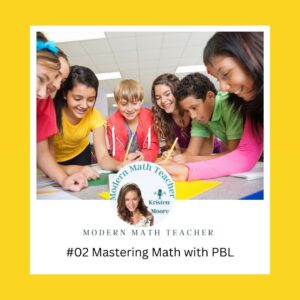


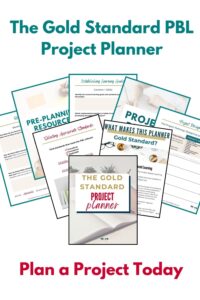
2 Responses
thanks for info
You’re so welcome! It’s so important to be able to maximize our time and learning opportunities for our students!